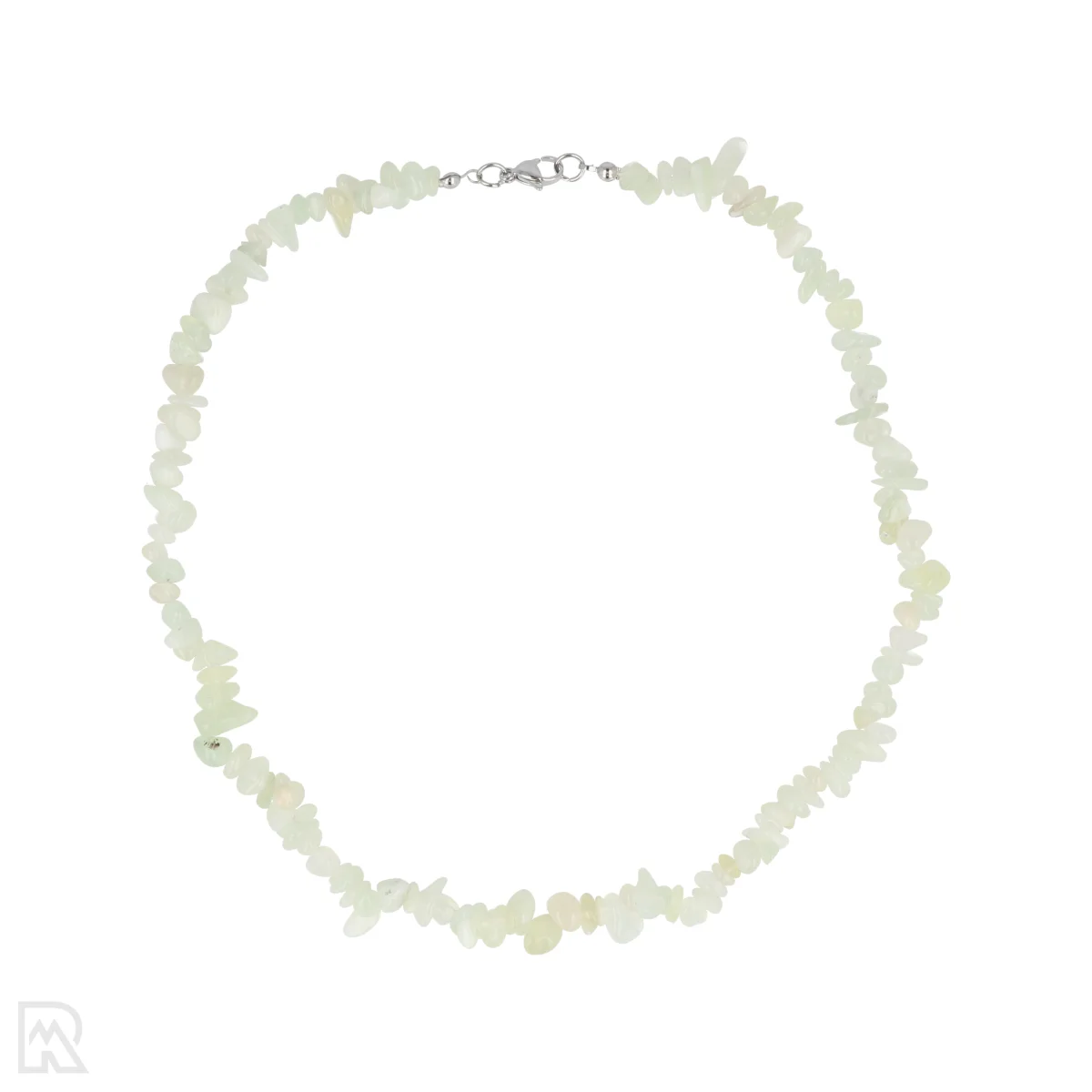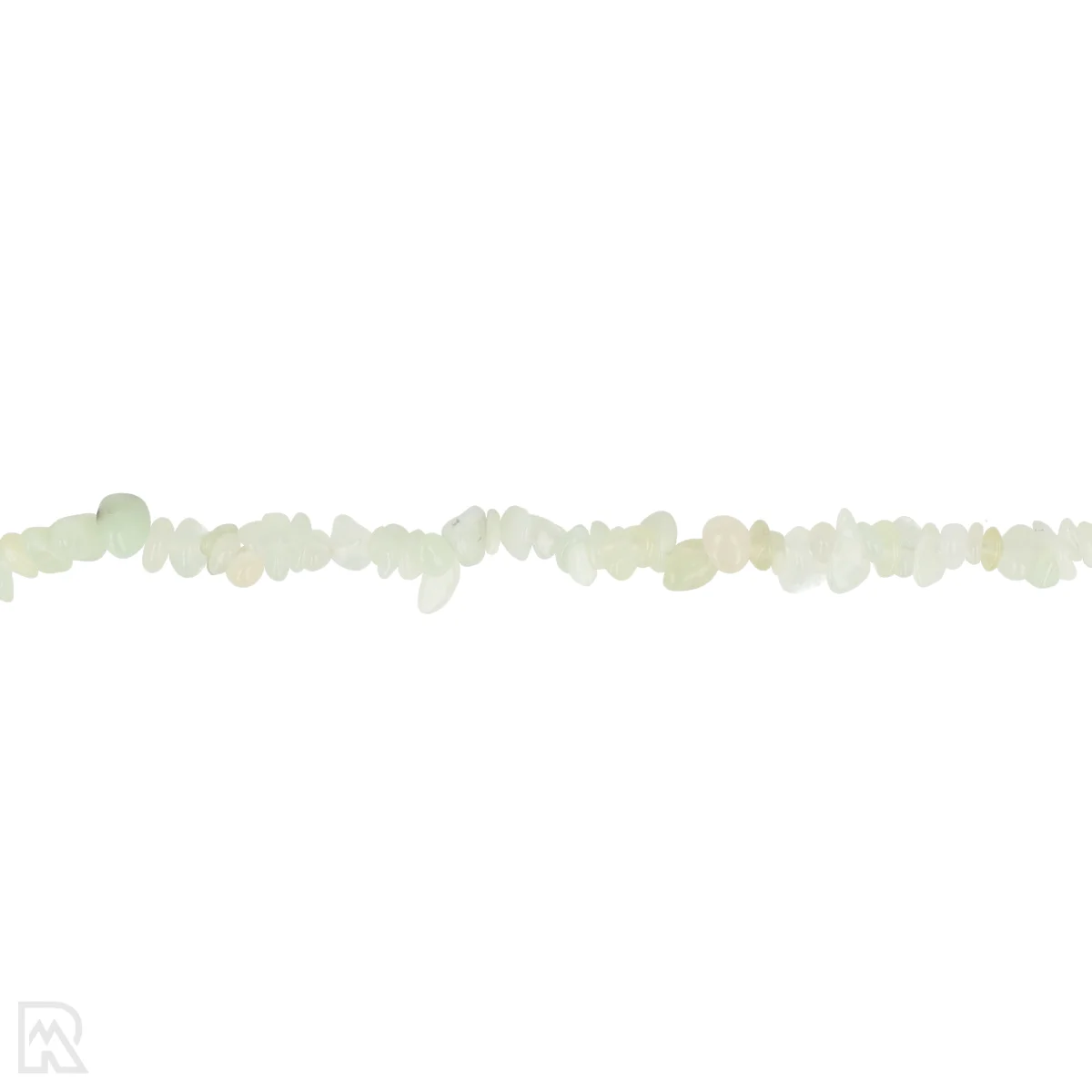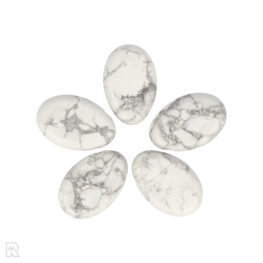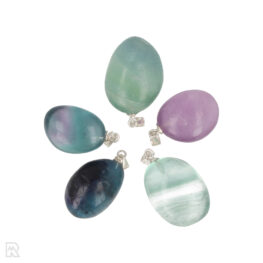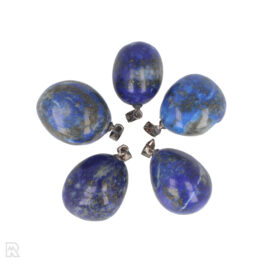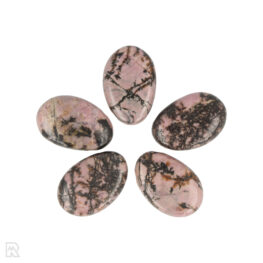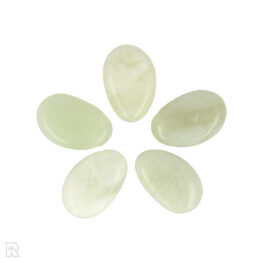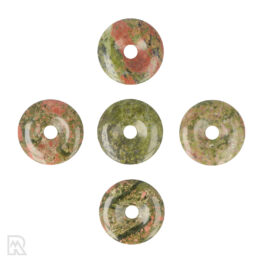| Gewicht | 0,04 kg (40 gr) |
|---|---|
| Dimensions | 45 cm |
| Sales Unit | |
| Type | |
| Size | |
| Form | |
| Origin | |
| SKU | 9330 |
Serpentine - New Jade Split Necklace | A
Serpentine - New Jade Split Necklace from China
Serpentine
Serpentine is a group of minerals formed by the hydrothermal conversion of olivine and pyroxene in ultramafic rocks. Its colour ranges from light green to dark green, sometimes with a marble-like pattern. Serpentine has a waxy to silky luster and a smooth surface, making it popular for decorative use and sculpture.
Major deposits of serpentine include China, Italy, Afghanistan, the US and South Africa. The chemical composition varies, but common forms are antigorite, lizardite and chrysotile. The general formula is (Mg,Fe)₃Si₂O₅(OH)₄. Serpentine has a hardness of 2.5 to 5.5 on the Mohs scale, depending on the variety.
A popular variety is "New Jade", a trade name for a light green form of serpentine often used as an alternative to jade in jewellery and decorative objects. So, despite the name, it is not real jade, but serpentine with a jade-like appearance.
Sources:
Mindat.org, Gemdat.org, Wikipedia - Serpentine
Our necklaces are available in various designs, including faceted, ball, split and knotted necklaces. Currently, all necklaces in our range are 45 cm long, which corresponds to a standard wearing length for most neck sizes. The beads or slivers used vary in shape and finish, giving each necklace a unique character.
The bead size varies depending on the type of chain, from around 4 mm in finer models to around 8 mm in the somewhat coarser versions. For split necklaces, uneven pieces of stone are used, with the split used varying from 5 to 10 mm, giving a natural look. Knotted necklaces feature a knot between the beads, which is not only decorative but also contributes to the strength of the jewellery.
Keep in mind that not every variety is available in all designs or bead sizes.
